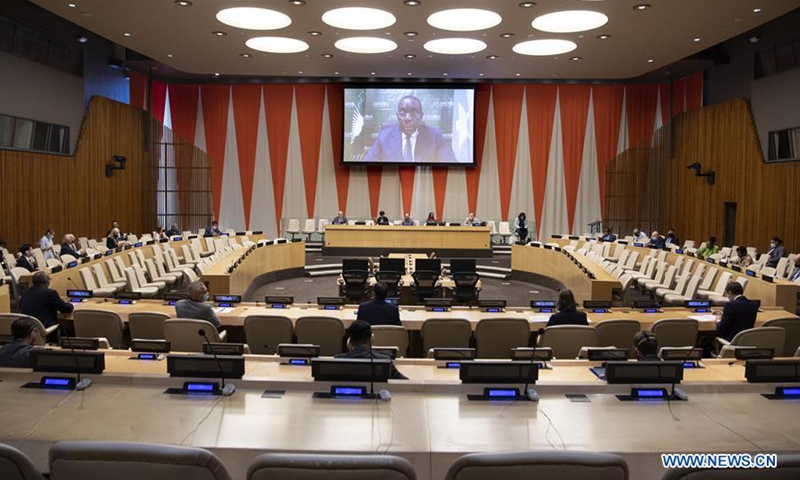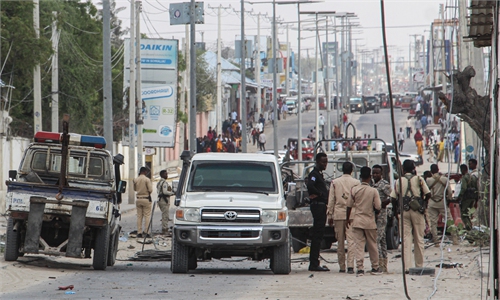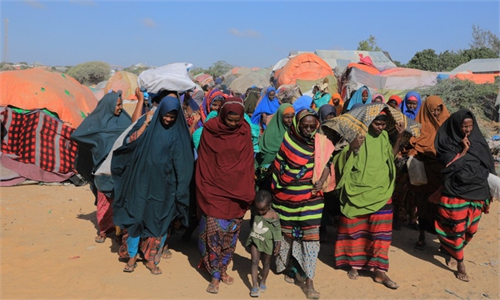UN calls for Somalia drought relief
African nation on verge of humanitarian catastrophe

Photo taken on Aug. 20, 2020 shows the Security Council meeting on the situation in Somalia at the UN headquarters in New York. Somalia, like the rest of the world, is focused on confronting the COVID-19 pandemic, said the top UN envoy for the country. (Eskinder Debebe/UN Photo/Handout via Xinhua)
UN Humanitarian Coordinator for Somalia Adam Abdelmoula on Tuesday called for urgent international help as drought-driven hunger threatens hundreds of thousands of lives in Somalia."Somalia is on the brink of a devastating and widespread hunger and mass starvation that could claim hundreds of thousands of lives. Since the beginning of the year, the drought emergency in Somalia has worsened dramatically and today we are looking at a looming disaster," he told reporters at UN Headquarters in New York via a video link.
The situation is grim. Four consecutive rainy seasons have failed, creating the worst drought in Somalia in at least four decades. At the same time, food prices have soared, and humanitarian assistance remains out of reach for millions of Somalis as resources to meet their needs remain limited, he said in a statement.
The UN believes that the drought has so far affected 7 million people, displacing over 805,000 from their homes.
Recently, some areas received moderate, scattered rains. But these were not enough to alleviate the severe drought conditions. There is now a concrete risk that the next rainy season could also be below average, which would mark an unprecedented fifth consecutive failed rainy season, he warned.
"Should these forecasts materialize, the situation will worsen further until mid-2023, at the earliest. Already, eight areas in Somalia are at increased risk of famine, particularly in the south of the country - in regions where insecurity and conflict make humanitarian access extremely challenging."
Some 7.1 million Somalis, close to 50 percent of the population, are facing crisis-level food insecurity or worse through at least September. Of these, 213,000 people will face catastrophic hunger and starvation, representing a 160 percent increase since April, he said.
Women, children and the elderly have been particularly hard hit, constituting 82 percent of all people displaced by drought since January. An estimated 1.5 million children under the age of 5 face acute malnutrition, including 386,400 who are likely to be severely malnourished, he said.
"Somalia is certainly heading toward a famine, if action is not taken now."
Somali families are increasingly unable to cope with the high food prices as local food has become scarce. Moreover, imported food prices have also reached record levels, in part because of supply chain impacts due to the crisis in Ukraine. In some parts of the country, food prices have risen by 140 to 160 percent.
Before the Ukraine conflict, Somalia imported 85 percent of wheat from Ukraine and Russia, he said.
Xinhua



